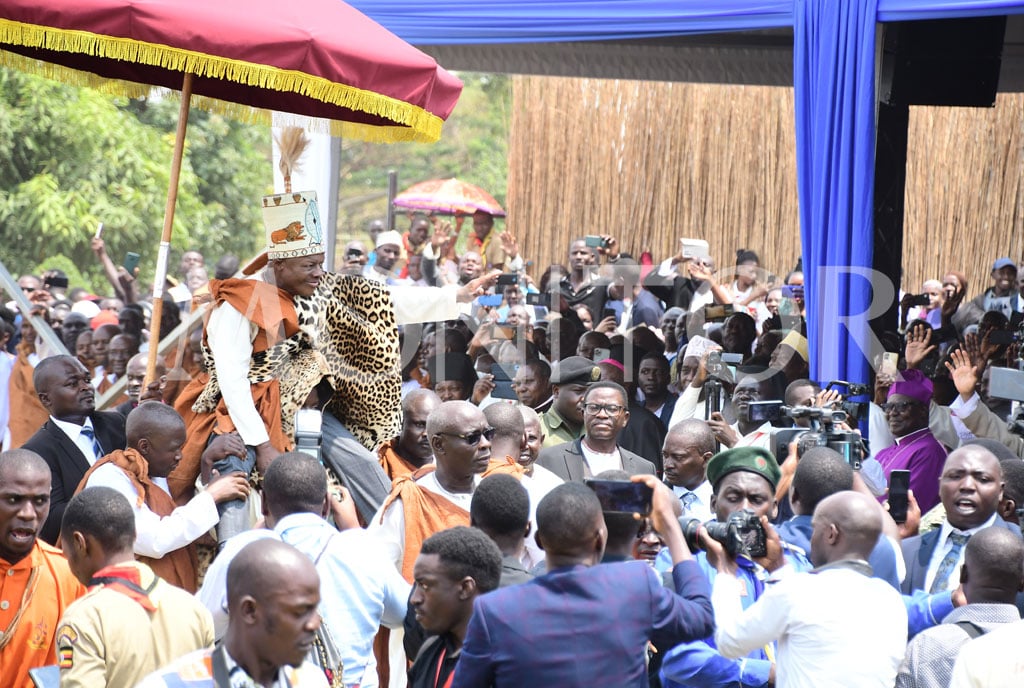Prime
By the time Mengo wakes up, Buganda will be long gone

Author: Gawaya Tegulle. PHOTO/NMG
What you need to know:
- Buganda’s history presents an interesting paradox, a classical socio-political dialectic.
It’s, hands down, one of the more heartbreaking cases I ever came across. An old couple, really elderly. Harmless. Friendly. Good citizens. But they had a very big problem: they owned a large chunk of land, somewhere in Greater Mpigi – which just so happens to be a big geographical area, but certainly representing some of the land most prime in Uganda.
Turned out there was a group of people who felt they could make better use of the land than this old couple; but try as they could, the old couple, traditional Baganda folks, didn’t want to sell their ancestral land.
So, one good day, police turned up, arrested the old folks, carted them off to the police station and charged them with assaulting and causing physical harm to somebody they had never heard about.
They were promptly locked up, and a few days later, arraigned in court where the magistrate appeared ready to receive them. Charges were read to them and they were quickly remanded to prison, awaiting trial. Quite predictably, whenever they came to court, the magistrate was either on leave, or at a funeral, or attending a meeting or seminar by whatever name called.
They emerged from jail several months later, badly shaken by the experience, looking even much older and frail for their troubles. And a nice little surprise awaited them on getting back home. Everything had changed. In fact, they had quite a bit of trouble locating their home. Their vast land had been long taken up by new people, all protected by soldiers and they had properly developed the land. The old folks had been left just enough space for the house and a small compound. This is a typical tale of what is happening in so many areas in Buganda: highly connected individuals, enjoying military protection, freely grabbing land in broad daylight.
The army may be having plenty of trouble keeping the Allied Democratic Front (ADF) rebels in check so they don’t kill harmless, helpless civilians. And they may be having quite some trouble protecting themselves from the al-Shabaab in Somalia, yes. But they are scoring plenty of successes helping land grabbers acquire and keep their loot.
The descendants of Kintu, hands firmly tied, are being punched in a boxing ring where the referee is looking the other way and what’s more, he forgot the rule book home.
Buganda’s history presents an interesting paradox, a classical socio-political dialectic: its strategic location as the heart of Uganda in political and economic terms – is an excellent opportunity which, if handled well, ensures many Baganda can become millionaires and never have to worry too much again, because of the sheer value of the land. But the premium value of the land is precisely why at the same time, Buganda faces a real existential threat.
Buganda – the “firstborn” of Uganda, the preeminent of the kingdoms in old time East and Central Africa and perhaps the proudest of them all, and from whom this nation derives its name – is being systematically carved up and served to scavengers in humiliating fashion.
Kingdoms and cultures, no matter how great, are living organisms and subject to the same vagaries as any other organism: they blossom and grow if nurtured well, and they wilt and wither, if left to their own devices, at the mercy of the elements. The Aztec Kingdom of North America, the Mongolian Empire in Asia and many others are now footnotes of history; at the rate of the thuggery going on, Buganda will soon join that list.
Interestingly, people are quiet about this; cowering in their shells about the systematic manifest thuggery being conducted in broad daylight. The loudest silence is that of Mengo, the seat of Buganda Kingdom, which is ideally, the most influential of cultural institutions.
By the time Mengo wakes up, if it ever does, Buganda will be long gone, a dinosaur for kids to discuss in history class, and for curious American or British anthropologists to dig up in the years to come, tracing for any remnant of what was no doubt the finest kingdom in East and Central Africa.
And the line “Ekitiibwa kya Buganda kyaava dda” in the Buganda anthem will have been amended to “kyaafa dda”.
Gawaya Tegulle is an advocate of the High Court of Uganda




